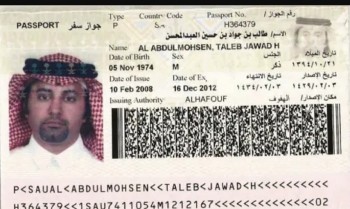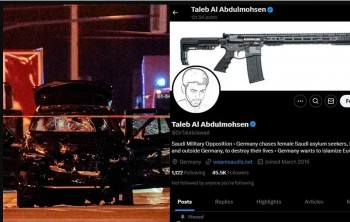Christmas Market Killer is a Closet Jihadist, Ready to Die in 'Suicide Mission'
 What are the Causes and Motives in German Christmas Market Attack? What are the Causes and Motives in German Christmas Market Attack? |
Germany was shaken to its core on December 20 when Taleb al-Abdulmohsen, a 50-year-old Saudi psychiatrist, drove a rented SUV into the bustling Magdeburg Christmas market, killing five people, including nine-year-old André Gleißner, and injuring at least 235 others, dozens of them critically.
As the nation mourns, emerging details about Abdulmohsen’s motives and beliefs have spurred intense debate, with the far-Right Alternative for Germany (AfD) party claiming the attacker was a “closet jihadist” on a suicide mission.
 |
| Germany Christmas market killer Taleb al-Abdulmohsen was ‘undercover jihadist’ |
A Deadly Mission Unfolds
Abdulmohsen’s attack came without warning, disrupting the festive spirit of the Christmas market. The devastation was immediate and tragic, with families torn apart in a scene of chaos. Arrested at the scene, Abdulmohsen reportedly left a will in his rental car, indicating he expected to die during his assault. His repeated vows on social media that he would not live to see the end of the year paint a chilling picture of premeditation.
Authorities have since charged Abdulmohsen with five counts of murder, several counts of attempted murder, and grievous bodily harm. While terrorism charges have not yet been filed, the attack is widely perceived as a calculated act of violence, raising questions about his true intentions.
The ‘Closet Jihadist’ Allegations
Alice Weidel, co-leader of the AfD, addressed a rally near the site of the attack, claiming Abdulmohsen was a “closet jihadist” who masked his Islamist motives through taqiyyah—a concept allowing Muslims to conceal their beliefs in hostile environments. According to Weidel, the attack was part of a covert Islamist agenda against Germany and its Christian heritage.
Weidel described the rampage as “a crime beyond imagination, driven by hatred against everything that defines us as Germans, as Christians, and as humans.” Her remarks also emphasized the need for tighter border controls and a reevaluation of Germany’s immigration policies, arguing that the government’s leniency had paved the way for such acts of violence.
A Web of Contradictions
The theory of Abdulmohsen as a jihadist is muddied by his public persona. Since arriving in Germany in 2006, he had been an outspoken critic of Islam, condemning what he described as the “Islamisation” of Europe and aligning himself with far-Right narratives. His social media posts frequently attacked German immigration policies and former Chancellor Angela Merkel, portraying himself as a victim of persecution for renouncing Islam.
In one particularly ominous post, Abdulmohsen wrote: “Revenge will come soon. Even if it costs me my life. I will make the German nation pay the price of the crimes committed by its government against Saudi refugees.”
His online rhetoric, coupled with his decision to will his fortune to the German Red Cross without a political message, presents a complex picture. While his violent actions and apparent willingness to die align with jihadist behavior, his documented anti-Islam stance complicates the AfD’s narrative.
A Suicide Mission?
German investigators are exploring the possibility that Abdulmohsen’s motives were deeply personal, driven by grievances against Germany’s treatment of Saudi dissident asylum seekers. The Saudi government had reportedly warned German intelligence multiple times about Abdulmohsen, citing his threats of violence. Despite these warnings, German authorities did not act decisively, allowing him to remain in the country, where he eventually gained refugee status.
Der Spiegel, a prominent German news outlet, revealed that Abdulmohsen had written a will before the attack, anticipating his death in what appears to have been a suicide mission. His social media posts reinforce this notion, with declarations of impending death and a desire for vengeance.
The AfD’s Exploitation of Tragedy
The AfD has seized on the attack to amplify its anti-immigrant and anti-Muslim rhetoric, casting Abdulmohsen as an emblem of hidden Islamist threats. Weidel’s claim that Abdulmohsen was a “closet jihadist” reflects a broader effort to associate refugees and migrants with terrorism, a cornerstone of the party’s far-Right agenda.
However, critics warn that such narratives risk inflaming xenophobia and diverting attention from the nuanced realities of the case. By focusing on the alleged jihadist angle, the AfD may be oversimplifying a complex situation to serve its political goals, further polarizing an already divided society.
The Shadow of a Jihadist Threat
While Abdulmohsen’s actions do not fit the conventional mold of an Islamist terrorist, his behavior exhibits key elements of jihadist ideology: a readiness to die for his cause, meticulous planning, and a desire to inflict mass casualties. His statements about vengeance and his alignment with extremist rhetoric on social media suggest a mindset radicalized by personal grievances and ideological hostility.
The lack of explicit Islamist messaging in his will and his public denouncement of Islam do not negate the possibility that he acted out of a distorted sense of mission. If the AfD’s claims hold any weight, Abdulmohsen may represent a new, covert form of radicalization that defies traditional classifications.
A Nation at a Crossroads
The Magdeburg attack has reignited debates over Germany’s security policies, immigration system, and ability to identify and neutralize threats. For many Germans, the tragedy underscores the need for vigilance and stronger safeguards to prevent future attacks. At the same time, there is a growing recognition of the dangers posed by reactionary rhetoric that targets entire communities based on the actions of an individual.
As Germany grapples with the aftermath, the attack serves as a stark reminder of the evolving nature of modern threats. Whether Abdulmohsen was a “closet jihadist” or a deeply troubled individual acting on personal vendettas, his actions have left an indelible mark on the country’s collective consciousness.
Germany now faces the daunting task of balancing security with inclusivity, ensuring that its response to this tragedy does not undermine the values it seeks to protect. In the face of adversity, the nation must strive for unity, rejecting both extremism and the divisive narratives that threaten its social fabric.
 Who is Al Abdulmohsen, Saudi Arabian Doctor Behind the German Christmas Market Attack? Who is Al Abdulmohsen, Saudi Arabian Doctor Behind the German Christmas Market Attack? At least 5 people were killed and more than 200 others were injured when a Saudi national (named Taleb Al Abdulmohsen) allegedly crashed a car ... |
 The Man Behind the German Christmas Market Attack: Taleb al-Abdulmohsen doctor of psychiatry, "Lone Wolf"! The Man Behind the German Christmas Market Attack: Taleb al-Abdulmohsen doctor of psychiatry, "Lone Wolf"! The man behind the shocking Christmas market car attack in Magdeburg as Taleb al-Abdulmohsen, a doctor of psychiatry from Saudi Arabia. |
 Before Christmas market attack, What is Taleb al-Abdulmohsen post on social media? Before Christmas market attack, What is Taleb al-Abdulmohsen post on social media? Hours before the deadly car attack at Germany’s Christmas market, Taleb al-Abdulmohsen used X to accuse German authorities of persecuting him....... |























